Amidst the incessant influx of the Asiatic nations into Europe, during the slow decline of the Roman empire, and the migrations occasioned by their arrival, we should vainly attempt to trace the descent of the Poles. Whether they are derived from the Sarmatians, who, though likewise of Asiatic origin, were located on both sides of the Vistula long before the irruptions of the kindred barbarians, or from some horde of the latter, or, a still more probable hypothesis, from an amalgamation of the natives and new comers, must for ever remain doubtful. All that we can know with certainty is, that they formed part of the great Slavonic family which stretched from the Baltic to the Adriatic, and from the Elbe to the mouth of the Borysthenes. As vainly should we endeavour, from historic testimony alone, to ascertain the origin of this generic term slave, and the universality of its application. Conjecture may tell us, that as some of the more powerful tribes adopted it to denote their success in arms (its signification is glorious), other tribes, conceiving that their bravery entitled them to the same enviable appellation, assumed it likewise. It might thus become the common denomination of the old and new inhabitants, of the victors and the vanquished; the more readily, as most of the tribes comprehended under it well knew that the same cradle had once contained them. Other people, indeed, as the Huns or the Avars, subsequently arrived from more remote regions of Asia, and in the places where they forcibly settled, introduced a considerable modification of customs and of language: hence the diversity in both among the Slavonic nations—a diversity which has induced some writers to deny the identity of their common origin. But as, in the silence of history, affinity of language will best explain the kindred of nations, and will best assist us to trace their migrations, no fact can be more indisputable than that most of the tribes included in the generic term slavi were derived from the same common source, however various the respective periods of their arrival, and whatever changes were in consequence produced by struggles with the nations, by intestine wars, and by the irruption of other hordes dissimilar in manners and in speech. Between the Pole and the Russian is this kindred relation striking; and though it is fainter among the Hungarians from their incorporation with the followers of Attila, and among the Bohemians, from their long intercourse with the Teutonic nations, it is yet easily discernible...

History of Denmark, Sweden, and Norway (Vol. 1&2) : From the Ancient Times in 70 A.D. until Medieval Period in 14th Century (Complete Edition)
S. A. Dunham
book
History of Denmark, Sweden, and Norway (Vol. 1&2) : From the Ancient Times in 70 A.D. until Medieval Period in 14th Century (Complete Edition)
S. A. Dunham
book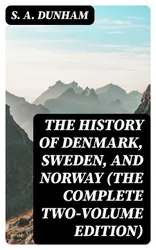
The History of Denmark, Sweden, and Norway (The Complete Two-Volume Edition)
S. A. Dunham
book
The History of Denmark, Sweden and Norway
S. A. Dunham
book
History of Denmark, Sweden, and Norway (Vol. 1&2) : From the Ancient Times in 70 A.D. until Medieval Period in 14th Century (Complete Edition)
S. A. Dunham
book
The History of Scandinavia
S. A. Dunham
book
A History of the Germanic Empire Volume 3
S.A. Dunham
book
The History of Spain and Portugal Volume 1
S.A. Dunham
book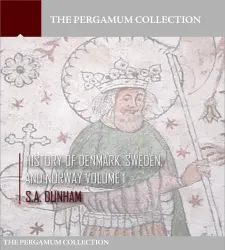
History of Denmark, Sweden, and Norway Volume 1
S.A. Dunham
book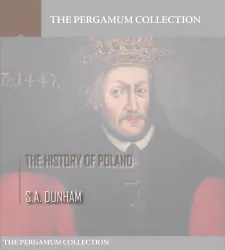
The History of Poland
S.A. Dunham
book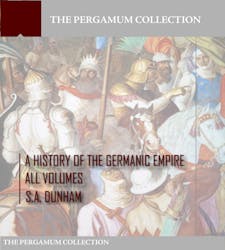
A History of the Germanic Empire
S.A. Dunham
book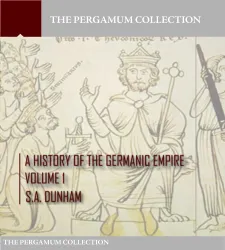
A History of the Germanic Empire Volume 1
S.A. Dunham
book

Spejlinger: Essays
Per Lange
book
Maimonides
David Yellin, Israel Abrahams
book
The World within War
Gerald Linderman
book
Inferno: The Fiery Destruction of Hamburg, 1943
Keith Lowe
book
Stalin’s Secret Police
Rupert Butler
book
Whirlwind : The Air War Against Japan, 1942-1945
Barrett Tillman
book
Deathride: Hitler vs. Stalin - The Eastern Front, 1941-1945
John Mosier
book
Den liflige musik : Richard Strauss som komponist og undersåt
Jakob Levinsen
book
Metropolis
Thea von Harbou
book
Beethoven: Livet og musikken
Lewis Lockwood
book
Sebastian Bach
Reginald Lane Poole
book
The Hate U Give : La haine qu'on donne de Angie Thomas (Analyse de l'œuvre) : Résumé complet et analyse détaillée de l'œuvre
Verity Roat
book
